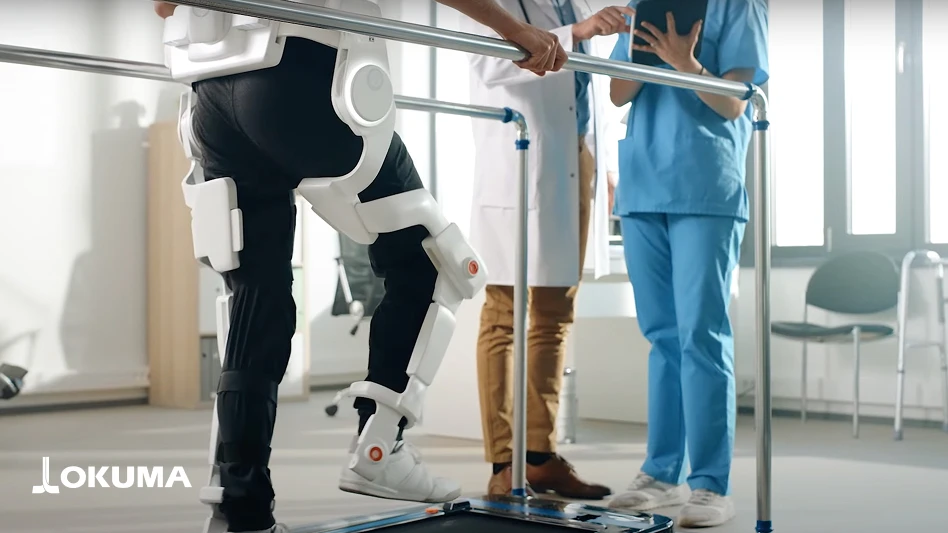
Northwell Health team shows off 3D printed adaptor to convert BiPAP machines into ventilators for COVID-19 patients. Credit: Northwell Health.
A Northwell Health physician, a respiratory therapist, and a 3D printing bioengineer have successfully designed the protocol to turn the more common bi-level positive airway pressure (BiPAP) machine into a functional invasive mechanical ventilator, through a 3D printed adaptor they also designed to aid in the conversion.
As the health systems nationwide brace themselves for a potential increase in COVID-19 patients and the need for an increased supply of ventilators for hospitals statewide, a team led by Hugh Cassiere, MD, medical director for respiratory therapy services at North Shore University Hospital (NSUH) and Stanley John, NSUH’s director of respiratory therapy, developed a method to convert the non-invasive Philips Respironics V60 BiPAP machine into a pressure controlled ventilator for both patients with and without COVID-19 induced lung disease.
The key component to converting the BiPAP machine is a small, plastic T-piece adapter. Because of COVID-19 related supply change shortages, Dr. Cassiere and Stanley John collaborated with Northwell Health’s 3D Design and Innovation department, and together they designed and 3D printed a T-piece in a matter of days.
“We were able to imitate the design of the T-piece adapter and print the plastic-resin piece with our 3D printers,” says Todd Goldstein, PhD, director of 3D Design and Innovation at Northwell Health. “If the need arises, we would be able to print 150 adaptors in 24-hours.”
In an effort to help other hospital systems across the nation, Northwell Health will share the new protocols to convert the BiPAP machine as well as share the T-adapter 3D print design online.
In addition to the T-piece adaptor, modifications to the BiPAP machine include the addition of two high-efficiency particulate air (HEPA) filters at both ends of the oxygen hose to alleviate fears of spreading the virus. They are also recommending using a blind reservoir connected to the last HEPA filter in the circuit.
Last week, Northwell Health, with collaborators at the University of South Florida (USF) and Formlabs, a leading 3D printing company, announced they produced and tested a 3D printed nasal swab to address emergency shortages that hospitals and health care teams may face as testing for COVID-19 increases.
Latest from Today's Medical Developments
- Forkardt Hardinge strengthens market position with ATS Systems acquisition
- July is for learning – so drop in for this month’s second Manufacturing Lunch + Learn
- MMT expands capabilities with acquisition of Comco
- Essential strategies to protect your data
- TT Electronics achieves ISO 13485 medical certification at Mexicali EMS facility
- Boost productivity with Nidec's innovative MGC300
- Meet AEON: the future of humanoid robotics
- Okuma: Extraordinary Starts Where Limits End









